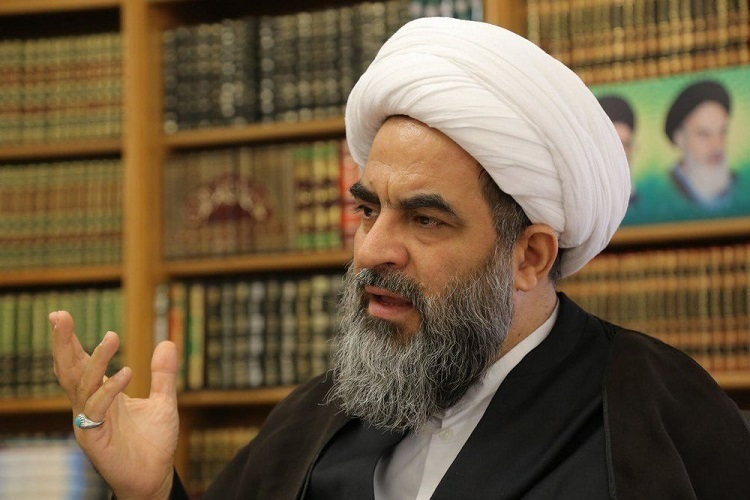AhlulBayt News Agency (ABNA): A senior lecturer in Qom Seminary says those who insult the Quran oppose political verses of the holy book, not the ones related to prayers or fasting.
Ayatollah Mohammad Javad Fazel Lankarani made the remarks while addressing a local event in Qom. Here are excerpts from his speech:
Verse 105 of Surah Al-Anbiya which reads: “We have written in the psalms which We had revealed after the Torah that the earth will be given to Our righteous servants as their inheritance” or verse 55 of Surah An-Nur which reads: “God has promised the righteously striving believers to appoint them as His deputies on earth, as He had appointed those who lived before” point to the issue of Khilafah at-tashri'iyya (legislative) which belongs to believers and the righteous,
Khilafah at-tashri'iyya means that God has allowed a person or persons to establish a government.
The complete example of the first mentioned verse will realize at the time of the advent of Imam Mahdi (may God hasten his advent) but it can also have examples at other times as well. The 1979 Islamic Revolution and Imam Khomeini’s movement or the jihad of Iranians during the war imposed by Saddam's regime are clear examples of that. The verse gives good tidings to humans that every group can follow this line of thought and seek the establishment of a religious government.
Governance is a central issue in Islam. Quranic verses clearly point to the need for having that.
Those who insult the Holy Quran are not against verses related to prayers, fasting, or Hajj, rather, they oppose political verses of the book. They are against verses such as “Only God, His Messenger, and the true believers who are steadfast in prayer and pay alms, while they kneel during prayer, are your guardians” (Surah Al-Ma'idah, verse 55) or “He will never help the disbelievers against the believers” (Surah An-Nisa, verse 141) or verses related to Jihad. If the Quran had not contained such verses or the ones that related to Moses’ confrontation with the Pharaoh, they would have not opposed the holy book.
Imam Khomeini did not just shatter the corrupt Pahlavi regime, rather, his movement was in line with the implementation of Quranic verses and the realization of Islam’s governance. We should remind people of the social nature of the religion and tell them that Islam is not limited to prayers and fasting. A central issue is to see whether one who wants to govern people is a believer or disbeliever. Islam does not let a corrupt rule over Muslims.
..........................
End/ 257

